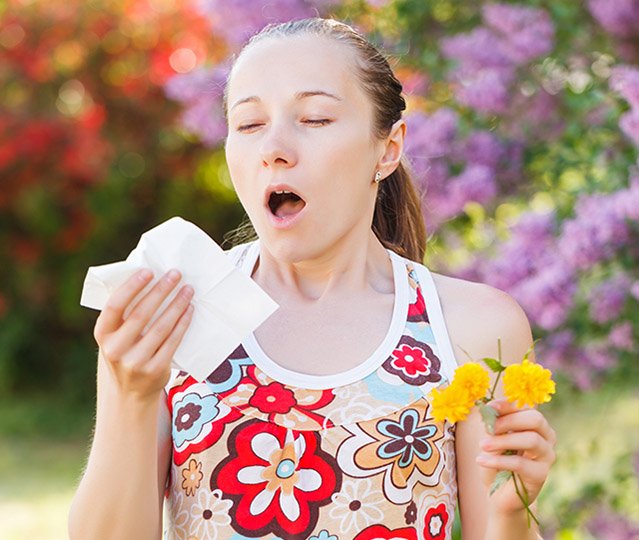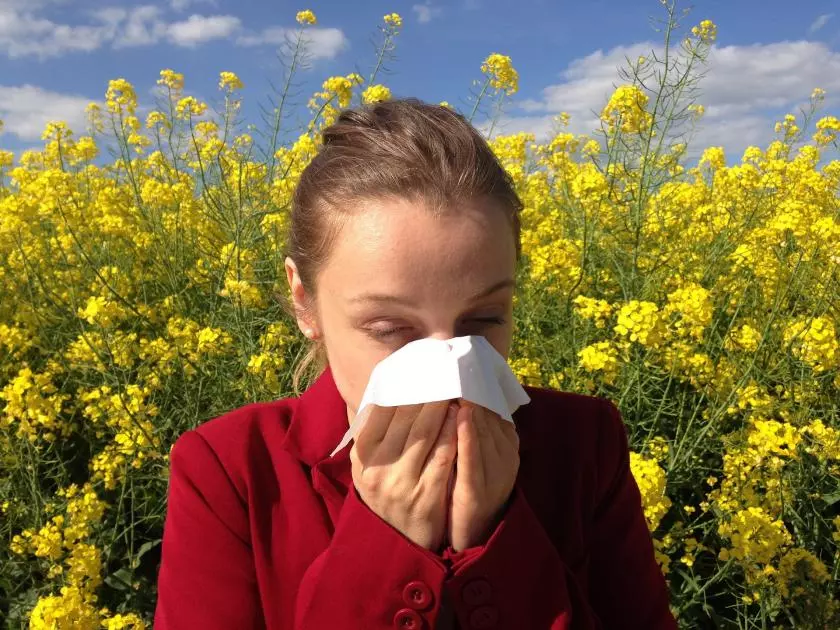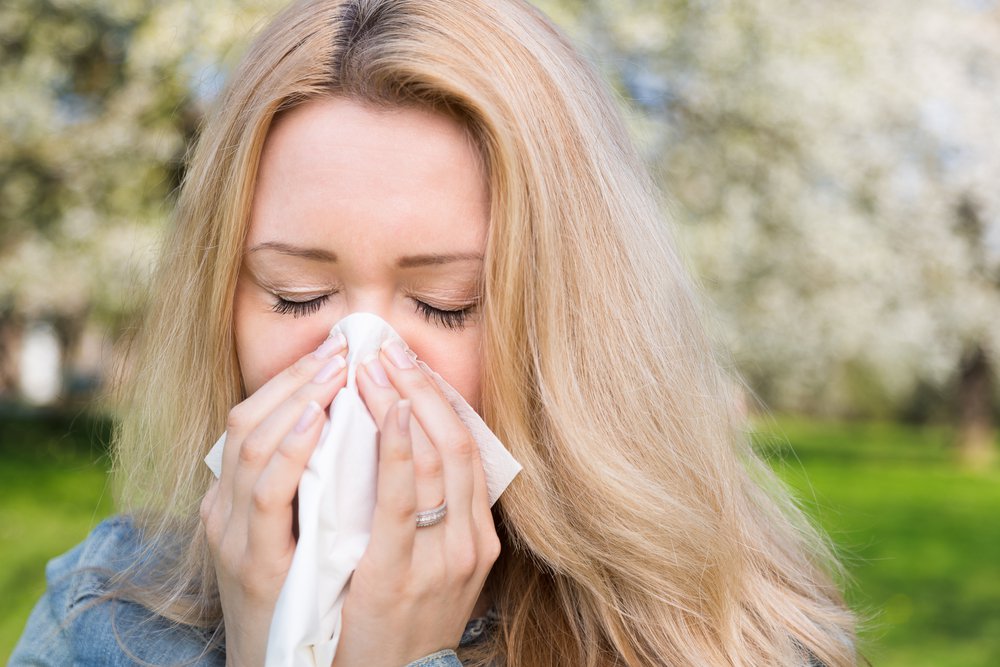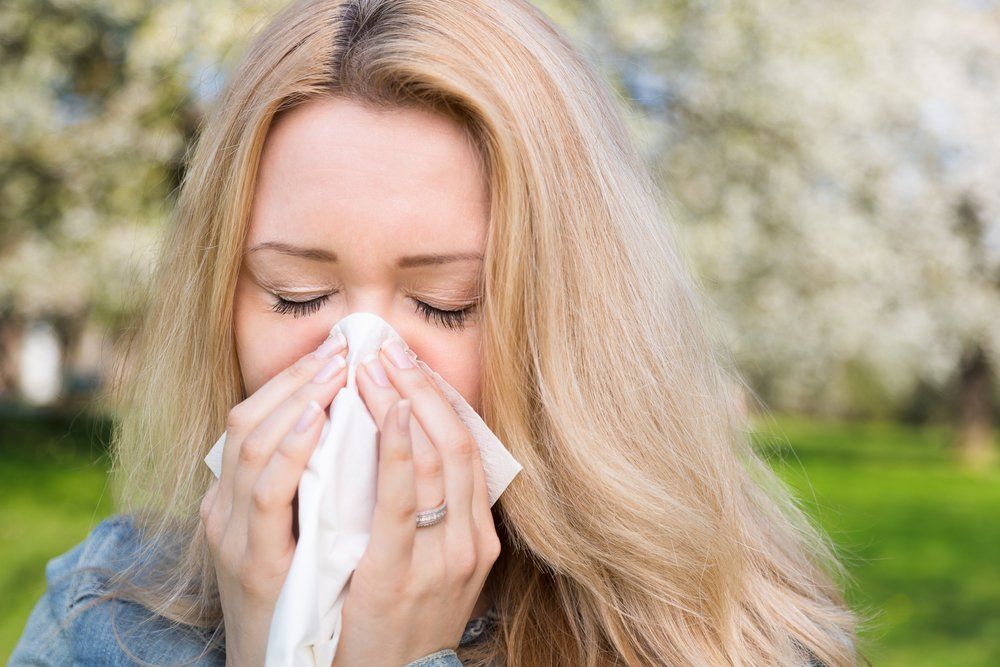Seasonal allergies, more commonly known as hay fever, occur when your immune system produces an allergic reaction to outdoor allergens such as pollens. The pollens from wind-pollinated plants such as trees, grasses, and weeds usually cause this allergy, while the pollens from insect-pollinated plants are heavy to less likely to trigger an allergic reaction.
The seasonal allergic rhinitis are less common at the time of winter but it is possible to experience allergic rhinitis year-round. Different plants release their respective pollens at different times of the year. Based on the allergy triggers and where you may be residing, hay fever can affect you in more than one season.
Common & Uncommon Symptoms Of Seasonal Allergies

Mild to severe symptoms of seasonal allergies. Some common ones include:
-
Ear congestion
-
Watery and itchy eyes
-
Sneezing
-
Runny or stuffy nose
-
Postnasal drainage
-
Itchy sinuses, throats, or ear canals
And here are the less common symptoms:
-
Wheezing
-
Shortness of breath
-
Coughing
-
Headache
Causes Of Hay Fever In Different Seasons

When your immune system identifies an airborne substance as harmful that is usually harmless. Histamines and other chemicals are released in the blood, producing symptoms of an allergic reaction.
In summer season, some weeds and grasses like ryegrass and Timothy-grass cause summertime allergies. The ‘hay fever’ name comes from people experiencing its symptoms during the historical hay-cutting season in months of summer.
In fall season, the pollen of ragweed or ambrosia is a common allergen and symptoms caused due to this can be very severe. Other plants releasing their pollens in the fall include nettles, mugworts, sorrels, fat hens, and plantains.
In spring season, allergenic trees of springtime include birch, willow, cedar, horse chestnut, poplar and alder are responsible for springtime allergies.
And in winter season, outdoor allergens become dormant. But indoors, people may get allergic reaction to indoor allergens such as pet dander, mold, dust mites, or cockroaches.
Precautions To Be Taken To Avoid Seasonal Allergies

Avoid seasonal allergies by keeping away from outdoor and indoor allergens and following other precautions such as:
-
Keeping windows shut
-
Limiting outdoor time
-
Wear a dust mask especially on windy days
-
Stay away from cigarette smoke
-
Use AC with HEPA filter for cooling your home in summer
-
Check local weather network for pollen forecasts
-
Clean moldy places and surfaces
-
Use dehumidifier for reducing excess moisture
Diagnosing Seasonal Allergies

As compared to other allergies, hay fever is usually easier to diagnose. If you have symptoms of allergy at certain times or in some seasons of the year, you might have seasonal allergic rhinitis. Doctor may check your ears, nose, and throat as a part of diagnosis.
Allergy testing is not essential. The treatment for seasonal allergic rhinitis will be same regardless of the type of allergen you react to.
Effective Treatments For Seasonal Allergic Rhinitis

Medications and alternative treatments are also available for treating symptoms of hay fever. If it’s hard to avoid the allergens, you may try these treatments:
-
Over-the-counter decongestants and antihistamines such as cetirizine (Zyrtec) and combination of acetaminophen, diphenhydramine, and phenylephrine (Benadryl)
-
Prescription medications such as steroid nasal sprays
-
Allergy shots recommended by doctor
-
Immunotherapy to desensitize your immune system to allergens
-
Lactobacillus acidophilus, the good bacteria in yogurt
-
Vitamin C with some antihistamine properties
-
Spirulina, a type of blue-green algae
-
Quercetin, a flavonoid that renders fruits and vegetables color
Image Source:
1) johntsagaris
2) neafamily
3) medicaldaily
4) tinypic
5) besthealthmag

